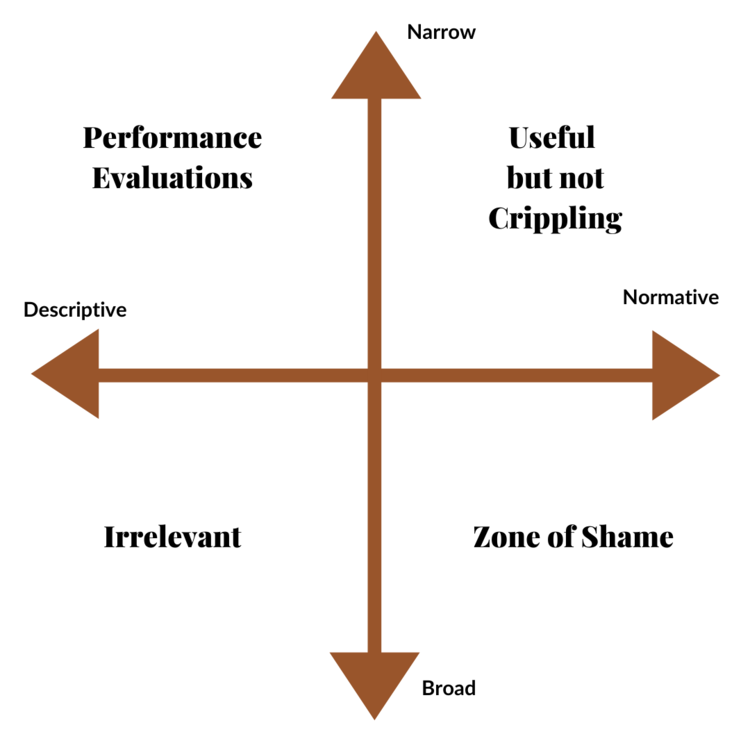If You're So Smart, Then Why Do You Feel Behind At Life?
How to separate useful behind-ness signal from the behind-ness noise.

Every week, competent, successful people report to me that they feel “behind” at work, education, and various personal milestones. Behind-ness is a plague.
But just because you can imagine or observe some alternate timeline doesn’t mean it’s in any way a relevant standard for you.
Standards must be determined in the context of the thing at hand. Otherwise, they’re not standards at all, they’re just free-floating ideas with no purchase on you.
Kinds of “Behind”
Let’s talk about the conceptual lay of the land here…
Descriptive vs. Normative behind:
A “descriptive” behind is just saying how things are.
If everyone’s trying to make a living, and you have $5 and that guy has $10k, then you’re “behind” him, sure.
A “normative” behind is saying how things should be - it invokes a considered, justifiable standard.
If the guy with $5 only has $5 because he’s been in a coma for a year, then of course we don’t really accept the normative ranking with him “behind” the $10k guy.
Broad vs. Narrow behind:
Broad behind: this is the “behind at life” thing - being “behind” generally.
Narrow behind: is local to a specific pursuit/activity/goal/etc.
Let’s put it all together:

How to Make Yourself Feel Better…
Stay in the narrow + normative zone.
These items are normative in the sense of being attached to standards that do indeed apply to you, but narrow enough to be action guiding. This is where “behind” feels useful but not crippling. For example:
- You’re behind at saving for retirement because you didn’t max out your employer matching 401k contribution. Oops! Maybe you can catch up.
- You’re behind at chores because you spent Saturday hanging out with a friend who was randomly in town, now your house is dirty. This is just a tradeoff, and a reasonable one, and it won’t matter much.
- You’re behind at getting married because you spent longer than you should have dating losers. Some amount of that loser-dating was not culpable, but some was. You can’t get your years back, but you can learn and move forward.
Beware the failure modes of behind-ness:
- Broad and descriptive: this is like a trust fund kid who’s now got a bigger house than you. Not exactly false that they’re ahead at house, but not relevant to you, either.
- Broad and normative: zone of shame, avoid at all costs. You’ll end up comparing yourself to others even when it’s not appropriate, and there’s no way out, either.
Note: narrow + descriptive - the realm of “performance evaluations” - can be useful. This is like when you are less experienced than a coworker, so they perform better at doing a piece of the work or taking an exam. It’s not necessarily a moral thing, but as a factual matter you may be behind someone else at a specific thing.
…Without Feeding Yourself Bullshit
Now, I’m not just saying “trust the process” and “everything in its own time.”
Some “processes” are going nowhere fast. Waiting around for something to happen is sometimes more like deciding it won’t. It’s possible to be behind!
Could we have done more with what we had, tried harder, learned faster? Sometimes yes, sometimes no - it must be determined case by case.
An external perspective can help (wink, nudge).
But if you always feel behind, and never “ahead” or (better yet) neutral, then that sure is suspicious.
Your “behind” beliefs might not be accurate - and anyways who can feel motivated to run a race they’ve already lost?
Pamela J. Hobart - Philosophical Life Coaching Newsletter
Join the newsletter to receive the latest updates in your inbox.